Viewed from my vantage point on the old lifeboat station, Hilbre’s role as guardian of the seaward approach to the River Dee becomes clear. Her cliffs, layers of weathered red and yellow sandstone come to a point just here. Sitting here, facing the Irish Sea, I feel like I am on the prow of a ship; an old battered ship maybe, but one which had stood proud and determined against all the incoming assaults the sea could throw against it.
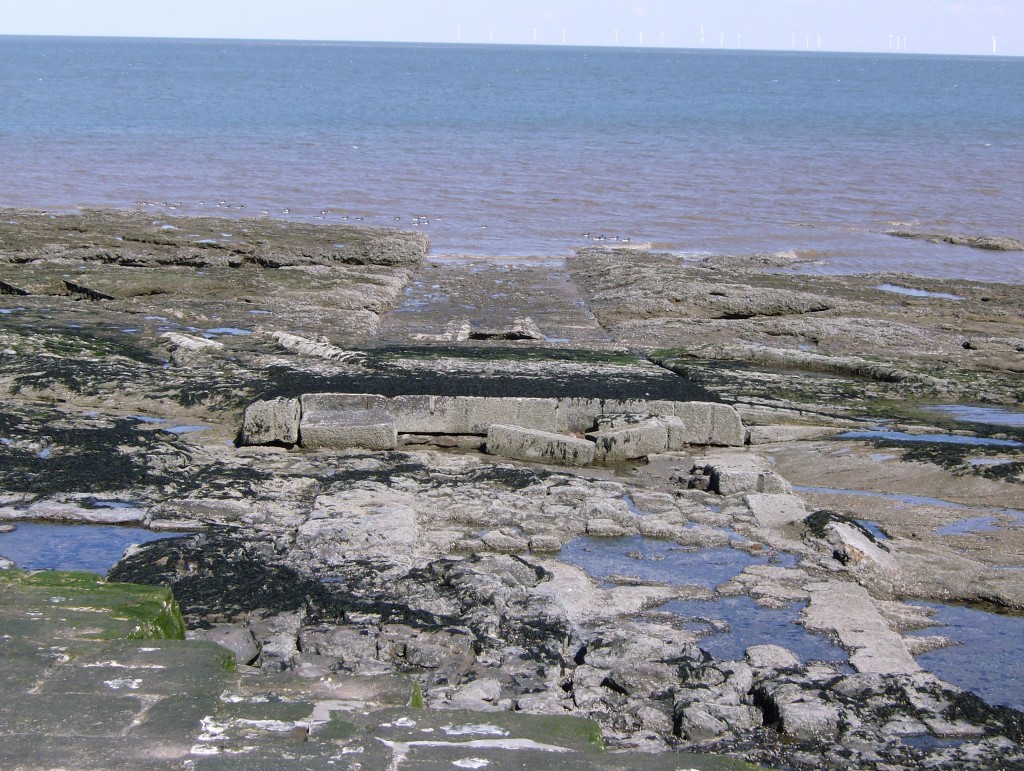
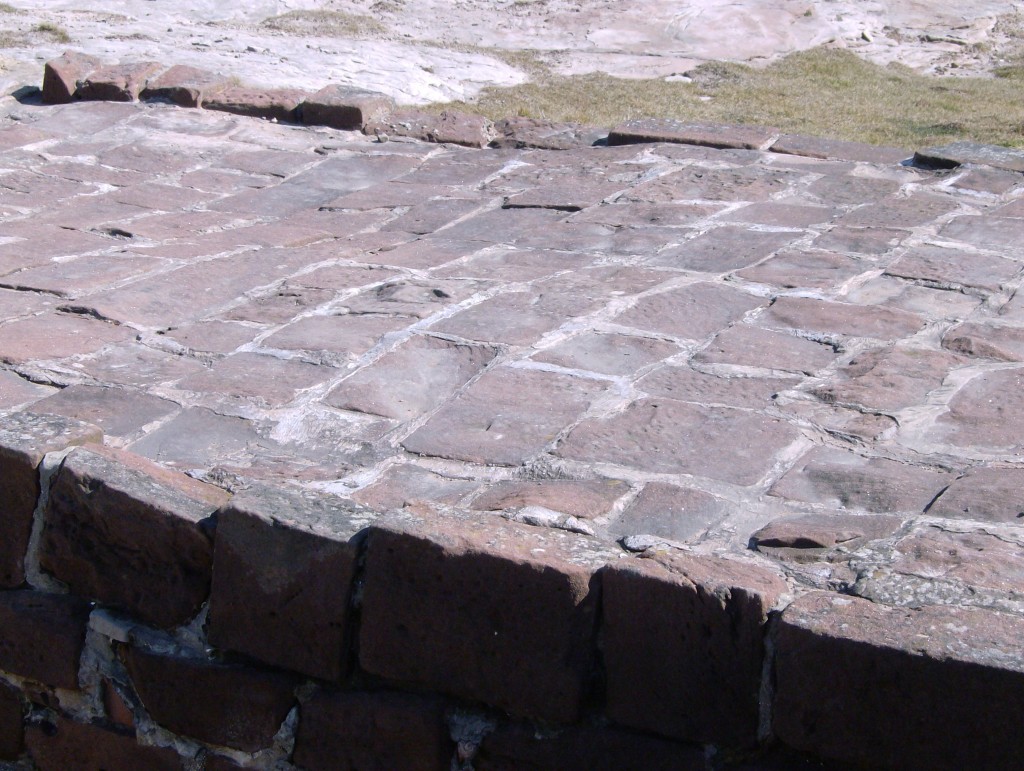 The sandstone seems very familiar. Familiar not so much because of any previous visit to Hilbre, but because this is the same local stone used for so many of Liverpool’s older buildings. It is the masonic sandstone which binds Liverpool to the bedrock of its bluff along the side of the Mersey.
The sandstone seems very familiar. Familiar not so much because of any previous visit to Hilbre, but because this is the same local stone used for so many of Liverpool’s older buildings. It is the masonic sandstone which binds Liverpool to the bedrock of its bluff along the side of the Mersey.
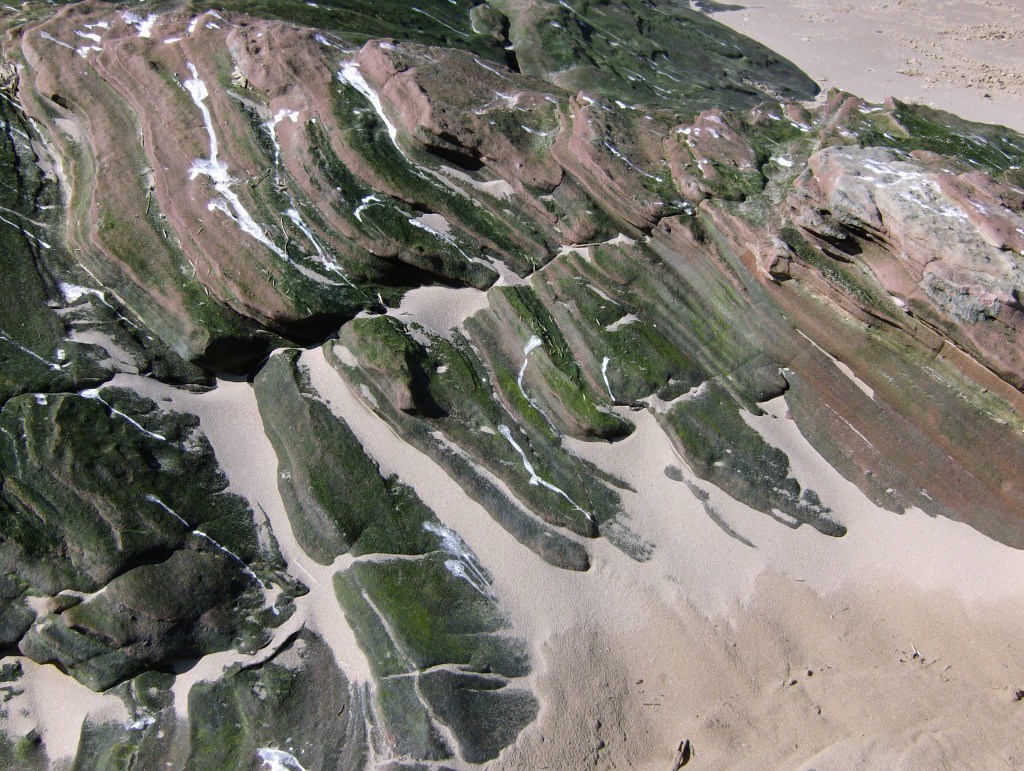
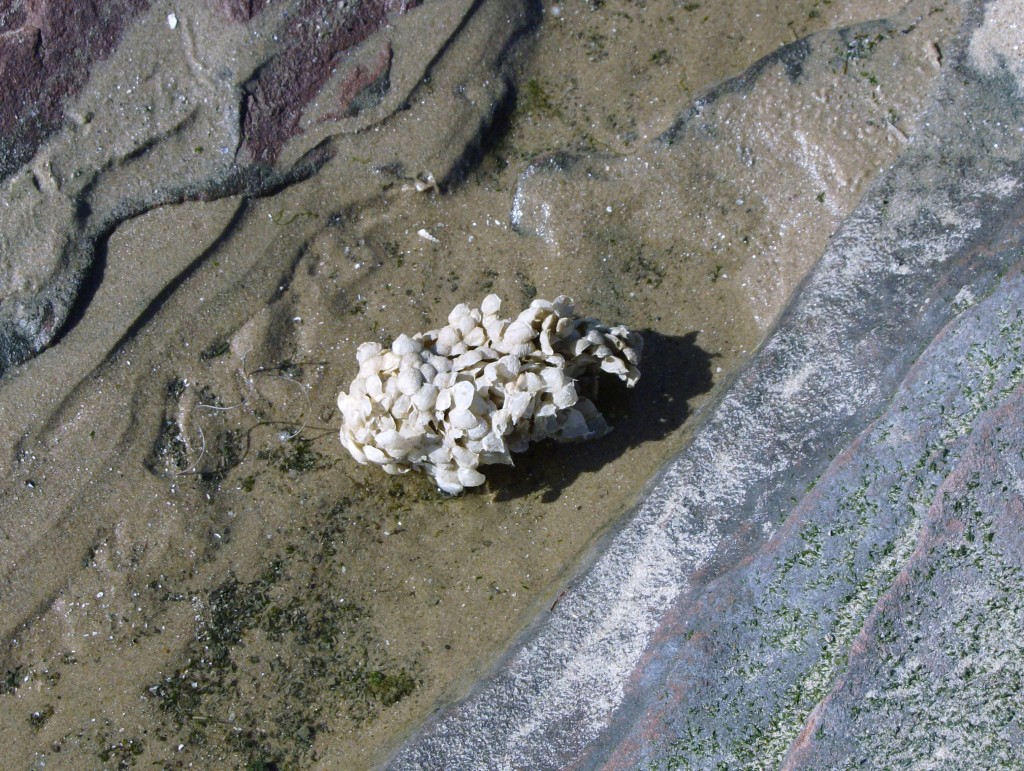 Back on the slipway I look up the track to the crest of the island; the low stone buildings shimmer in the heat haze. Turning to the west I see the vast expanse of the estuary of the Dee, grey-blue in the sunshine, and beyond that the smudge of the Welsh coastline.
Back on the slipway I look up the track to the crest of the island; the low stone buildings shimmer in the heat haze. Turning to the west I see the vast expanse of the estuary of the Dee, grey-blue in the sunshine, and beyond that the smudge of the Welsh coastline.
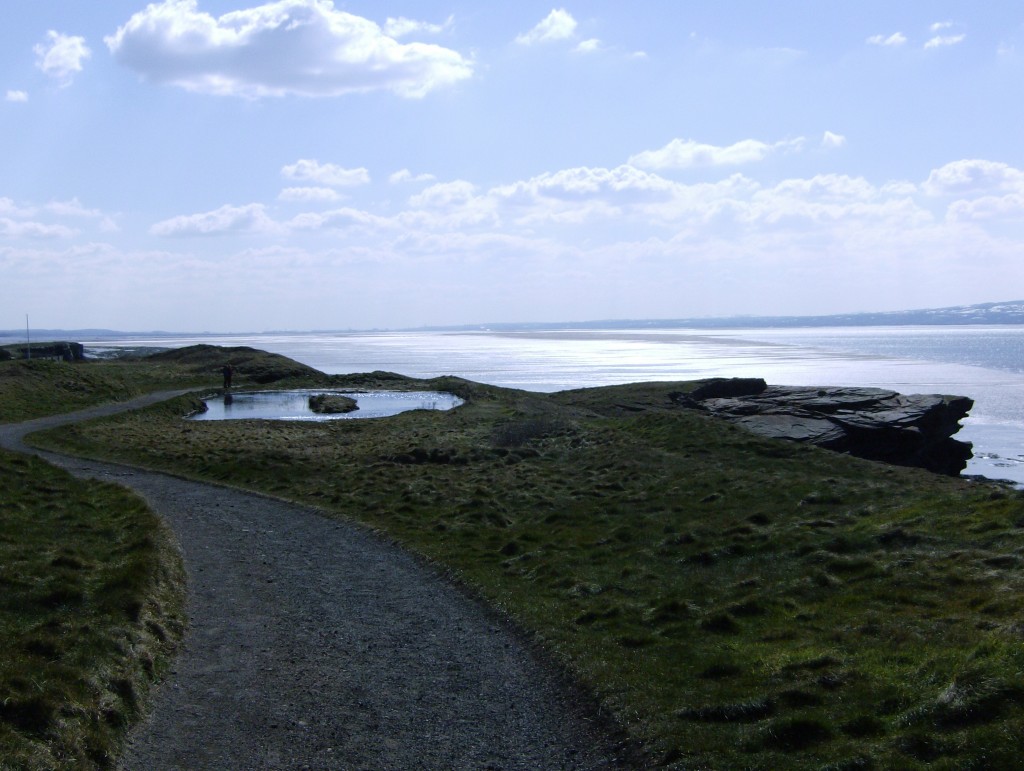 I walk along the cliff-top of the eastern edge of the island now and stop and face the water. To my left is Hoylake and, at the very tip of the Wirral peninsula, the Red Rocks. I switch my gaze to the right, tracing the line of sand dunes as far as West Kirby with its marina and the slipway where I had started my walk. But the huge expanse of sand I had walked over is now gone. In its place, but for the odd sandbank, is an expanse of grey water. And clearly the tide is coming in quickly; foamy waves are already lapping at the few remaining stretches of sand. I’d set out too long after low tide and had missed my opportunity to walk back over the sands.
I walk along the cliff-top of the eastern edge of the island now and stop and face the water. To my left is Hoylake and, at the very tip of the Wirral peninsula, the Red Rocks. I switch my gaze to the right, tracing the line of sand dunes as far as West Kirby with its marina and the slipway where I had started my walk. But the huge expanse of sand I had walked over is now gone. In its place, but for the odd sandbank, is an expanse of grey water. And clearly the tide is coming in quickly; foamy waves are already lapping at the few remaining stretches of sand. I’d set out too long after low tide and had missed my opportunity to walk back over the sands.
The water swallowed him up and he slipped down into its salty gullet. He didn’t struggle at first; he was too shocked, stunned. A deep roaring rose in his ears and his field of vision faded from bubbling white to soupy brown. Then, all was darkness; a darkness which seemed to catch hold of his body, to embrace him and to fill his whole being, flowing into his insides as well as enveloping the outside.
The voice of the water was honeyed, soothing. Then, as his falling seemed to slow, he cried out. He could hear the shout, somewhere in his head, but his voice was immediately stifled by water filling his mouth, his throat and his lungs. The taste of brine and iodine on his tongue, a crushing pressure in his chest so that it felt as if his lungs would burst. His muscles tensed and, at last, as if it had never occurred to him before, he struggled. He thrashed and struck out with all four limbs; he threw back his head and twisted at the waist. The water was trying to crush him.
For a second he paused. Was he falling or rising? He could not tell. Which way up was he? He had no idea. All around was black, cold and silent. His muscles relaxed and he became aware of his arms and legs floating and bobbing, as if rehearsing an existence free of their doomed host. And yet there was no pain, just an overwhelming, tightening pressure in his head and torso.
He fought against it no more but instead gave in. His body decided for him. He no longer struggled with the water, it was as if he was the water. And this was his home.
‘Those are pearls that were his eyes. Look!’
Words and images by Bobby Seal. ‘Pearls’ quote from T.S. Eliot’s The Waste Land

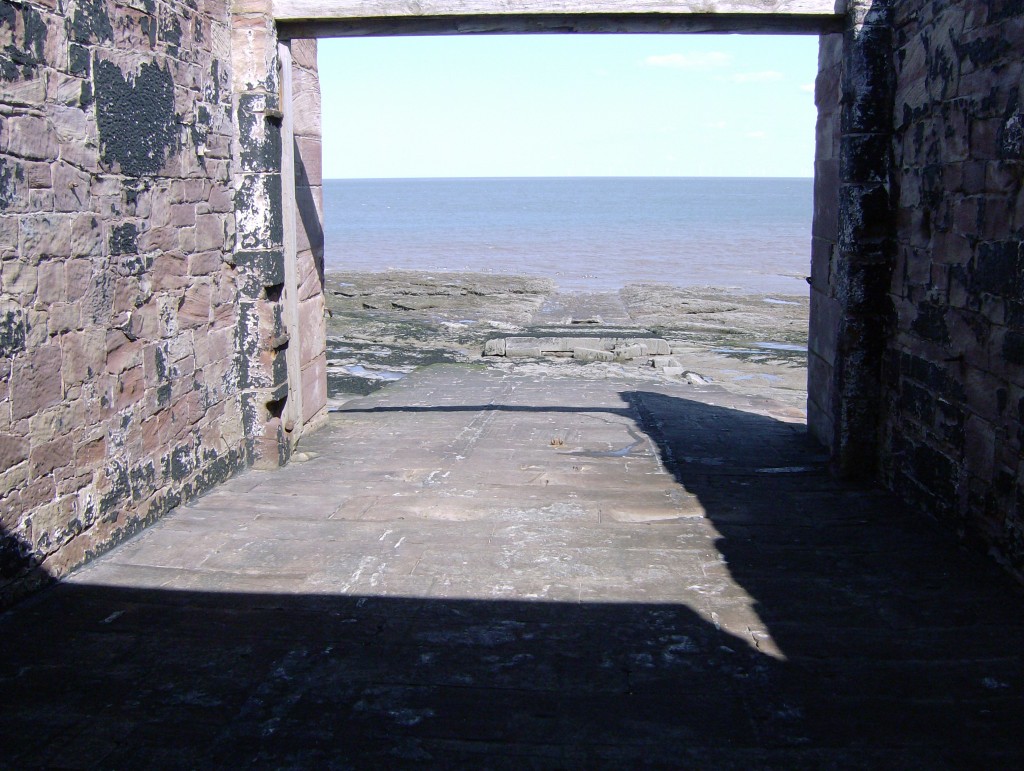
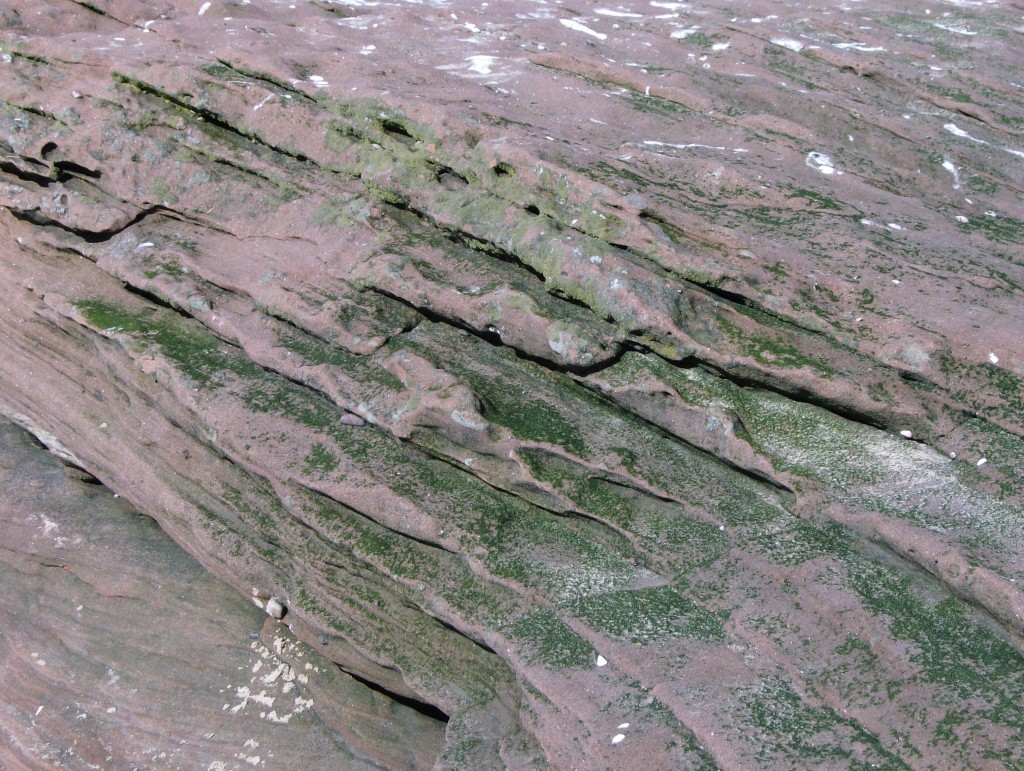
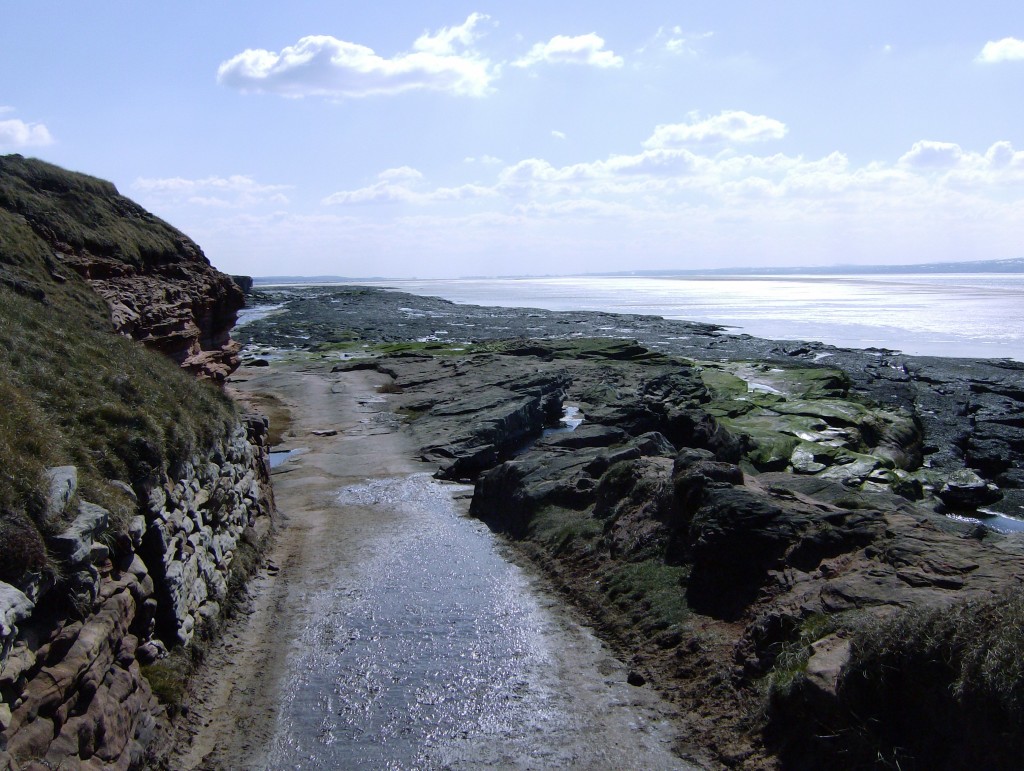
To be marooned on Hilbre… there are few pleasures greater!
Did you see the seals? I tried to wildcamp Little Eye recently and for the first time ever amidst the Selkie-songs I heard Bull-roars.
David
Not this time I’m afraid, Dave. Fortunately, the second section where I plunge into the water and drown is only imagined … I think.
Hello Bobby
I’ll be with you all the way as you walk along the River Dee. Distant but very happy memories for me.
Thank you
Beryl
Thanks Beryl. I hope maybe some of your memories of the Farndon chalets on the River Dee can be included in Lesley Martin’s history project?
Top photos! Another lyrical blog.
X
Thanks Liz.
Liz and Bobby,
Perhaps we should have a meeting of minds marooned on Hilbre one day? Part poetry, part psychogeography, part picnic…
D
Sounds fun. Careful to check the tide times though – no one deserves to spend eight hours marooned on a small island with yours truly!
Good stuff there, like the drowning account. Reminds of some of Lucy Wood’s evocations in Weathering.
Thanks Kieron – Weathering is a book I really do need to read.
Lovely blog, as ever. The ability to evoke places unknown to the reader is a rare one.
Billy, I write for the satisfaction of doing something to the best of my ability. Comments like yours are a bonus; a very lovely bonus. Thank you.
That’s a fairly considerable ability, Bobby.